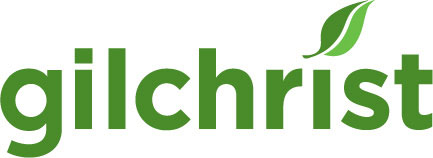Healthcare Decisions Day: Start the Conversation
Healthcare Decisions Day: Start the Conversation by Mary Onderdonk, DNP, AGNP-BC
April 16 is National Healthcare Decisions Day. Thinking through your healthcare wishes and documenting them in advance is one of the most important things you can do—not only for yourself but for your loved ones.
Having the conversation
Talking about serious illness and the end of life can be uncomfortable. However, especially in the wake of COVID-19, it’s more important than ever to talk with loved ones about your care wishes. When you have a conversation about end-of-life issues it should be seen as a labor of love and as an expression of dignity and respect. The conversation doesn’t have to be heavy, and you don’t have to talk about everything all at once. It can be done casually over time, even as part of daily conversation.

I work in palliative medicine, which is specialized medical care for those with serious or advanced illness. In palliative medicine, our focus is not on dying, but rather how you want to live until you die.
I often counsel patients that even if they don’t want to have their wishes in writing, they should at least talk about these wishes with someone they trust. Thinking about these issues prior to a medical crisis is invaluable.
A Few Ways To Get the Conversation Started
Here are a few tips for getting the conversation started:
- Spend some time thinking about the conversation before you begin. What does a good day look like for you? Perhaps a good day means spending time with family and friends, enjoying your favorite activities or savoring a meal. Are there things you are looking forward to in the future?
- Consider whether there are specific concerns you would like to address. For example, who would you like to make medical decisions on your behalf if you are unable to make decisions? Do you want to receive medical treatment indefinitely, no matter how uncomfortable, or is quality of life more important than quantity? Do you want to spend the end of your life at home or in a hospital or nursing facility?
- Are there medical interventions you would or would not want? Consider discussing resuscitation attempts (CPR), ventilation, feeding tubes and dialysis.
- Choose a comfortable location that will allow for thoughtful, intimate conversation. This may be around the kitchen table, at a place of worship or on a walk around the neighborhood.
- When you’re ready to have the conversation, try using COVID-19 as an icebreaker. For example, “COVID-19 has made me think about what might happen if I became seriously ill. I’d like you to help me think about the future.”
The perfect time
National Healthcare Decisions Day is the perfect time to make your wishes known and put them in writing. Conversations about medical decision-making and the end of life should be ones of respect. After having these important discussions, be sure to share any documents completed with your healthcare team to be added to your medical record.
Resources
Gilchrist has many resources on our advance care planning page to help you get started. You’ll find informative videos, answers to frequently asked questions, and useful resources to help you start the conversation and document your healthcare wishes.
To learn more about Gilchrist, visit gilchristcares.org.
To support our work, visit gilchristcares.org/giving






